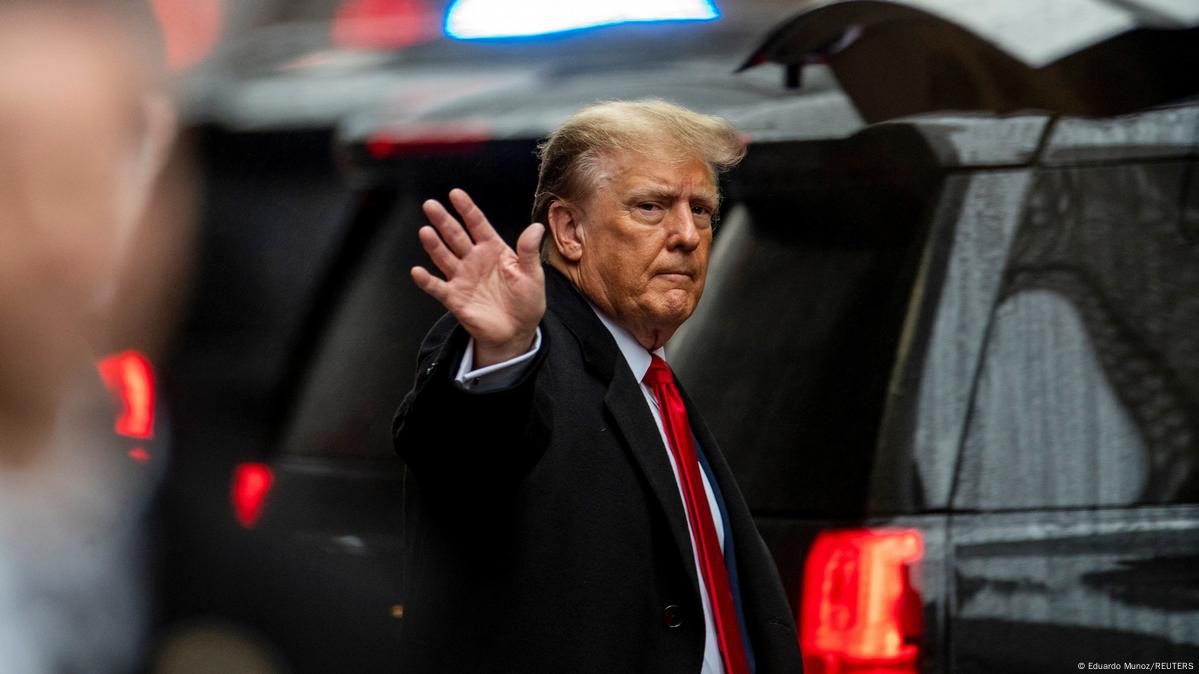Potential Trump return: what impact for Africa?

As Donald Trump eyes a potential return to the White House, questions are mounting over how his presidency might reshape U.S.-Africa relations, marked by geopolitical, economic, and social challenges.
During his first term, Trump’s focus on Africa was often minimal, but his second term could place the continent at the center of new dynamics.
Although Africa barely featured in the U.S. presidential debate, the relationship between the U.S. and African nations is set for significant shifts.
What can African countries expect from a renewed Trump administration? With suspensions in aid, controversial climate policies, and new economic initiatives on the horizon, the stakes are high.
U.S. Aid in Jeopardy
A major point of contention during Trump’s first presidency was the issue of U.S. foreign aid, particularly humanitarian and health-related support.
Trump famously suspended funding to the World Health Organization (WHO) and pulled the U.S. out of the agency—a move that his successor, Joe Biden, reversed.
For many African countries, heavily reliant on U.S. aid for their health systems, a Trump return could have serious repercussions.
The “Mexico Policy,” which severely restricted funding for reproductive rights and family planning, cut critical services in nations like Madagascar, adversely affecting the health of women and children.
With U.S. health organizations, traditionally funded by the American government, facing potential budget cuts under a second Trump administration, maternal and infant mortality rates—already high in some African regions—could worsen if these funds are withdrawn again.
Trade and AGOA
A second Trump presidency would likely trigger a re-evaluation of trade agreements between the U.S. and Africa, including the African Growth and Opportunity Act (AGOA), which allows African nations to export goods to the U.S. without tariffs, provided they meet certain governance criteria.
Under Trump’s first term, some countries like Uganda and Gabon were suspended from the agreement due to human rights violations.
With AGOA set to expire in 2025, discussions surrounding its renewal could become contentious.
Trump’s stance on human rights and political reforms will directly affect the economies of numerous African nations, with possible restrictions or tougher criteria for continued access to U.S. markets.
Trump’s “Prosper Africa” initiative, aimed at boosting trade and countering Chinese influence in accessing strategic natural resources, could offer new opportunities for African economies but with an emphasis on pragmatic economic interests, sidelining ideological considerations.
Climate Change: A Setback for Africa?
One area where Trump’s return could have a particularly detrimental impact is climate change policy.
As a prominent climate skeptic, Trump withdrew the U.S. from the Paris Agreement, a decision that not only affected America but also reverberated globally, especially in Africa, one of the continents most vulnerable to climate-related disasters.
While the Biden administration rejoined the accord and supported global climate initiatives, a return to Trump’s leadership could see a shift back to fossil-fuel-friendly policies.
Africa, with its vulnerability to climate change, could face an administration more focused on energy independence than on supporting climate adaptation or compensation for damages caused by climate disasters.
A Shift Towards Geopolitical Realism
Trump’s return might also signal a shift away from the human rights-centered approach championed by Biden.
Where Biden prioritized democracy, freedom, and human rights, including LGBTQ+ rights and reproductive issues, Trump may adopt a more pragmatic, interest-based approach.
This could foster closer ties with authoritarian regimes in Africa that do not align with Western democratic principles.
Such an approach could sour relations with African countries that have made these human rights issues a critical aspect of their engagements, while offering opportunities to strengthen ties with governments that prioritize geopolitical or economic interests over human rights.
In summary, a potential second term for Donald Trump would likely reshape the U.S.-Africa relationship, with far-reaching consequences for trade, aid, climate policy, and governance.
African nations may have to adapt to a more transactional and less values-driven partnership with the U.S., one that places economic pragmatism and geopolitical influence at the forefront.
About The Author
dailymailafric
I am an avid African news observer, and an active member of Daily Mail Africa.
I’m Passionate about staying informed on diverse topics across the continent,
I actively contribute to publishing on political, economic and cultural developments in Africa.



